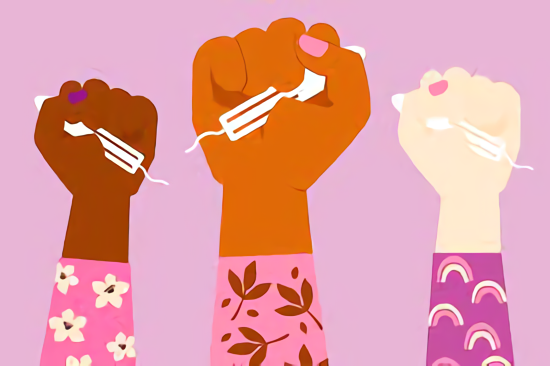UPF to become the first Catalan university with menstrual product dispensers
UPF Equality is launching a pilot test with the aim of promoting menstrual equity in all the university’s spaces. The Equality Unit will instal dispensers in two toilets on the Ciutadella campus and assess their use and cost with a view to subsequently expanding the initiative to the rest of the campus.

UPF Equality will launch a pilot test in the third term to set up free menstrual product dispensers at the university. For this initial trial run, two dispensers will be installed on the Ciutadella campus, in the inclusive toilet next to the Jaume I building bar and in the toilet closest to the UPF Equality office, on the ground floor of the Roger de Llúria building. This pilot test will make it possible to assess the use made of the dispensers, as well as the cost of making them permanent.
The project is being undertaken as part of the university’s commitment to the 2030 Agenda with a view to promoting menstrual eco-feminism at the university, breaking the menstruation taboo, and facilitating equal access to these products. The two dispensers will offer single-use tampons and pads.
The existence of these dispensers will allow the university to promote menstrual equity and contribute to eradicating period poverty. Rosa Cerarols, director of UPF Equality, notes that unfortunately ‘menstrual products are still not taxed at the VAT rate for essential products’ and that ‘there is still prejudice towards the world of menstruation’. This high cost is explained by gender blindness in public policy, which leads menstrual hygiene products not to be classed as basic needs. As a result, women, trans men and non-binary people are ‘punished’ with the added financial burden of what some call the ‘tampon tax’. The lingering taboo surrounding menstruation in patriarchal societies is thus compounded by the stigma of period poverty.
Some 22.2% of people with menstrual cycles report not having had access to period products at some point in their lives due to financial constraints, and as many as 39.9% report not having been able to afford the period product of their choice.
According to the study Equitat i salut menstrual [Menstrual equity and health], by the Jordi Gol i Gurina University Institute for Primary Care Research (IDIAPJGol), 22.2% of people with menstrual cycles report not having had access to period products at some point in their life due to financial constraints, and as many as 39.9% report not having been able to afford the period product of their choice. The same study suggests that women facing greater socioeconomic hardships, as well as non-binary and trans people with menstrual cycles, are at higher risk of menstrual inequity. The study also found that 74% of people with menstrual cycles report having overused a period product because they did not have access to a suitable place to change it.
To combat this period poverty and inequity, Cerarols emphasizes the role to be played by public institutions ‘and, in this case, universities, which must be able to offer this service’.
Linked to three sustainable development goals – gender equality, climate action and poverty eradication – the aim is to offer single-use organic period products and, in a second phase of the project, incorporate the menstrual cup. The initiative also aims to facilitate access to information and professional advice, on both the use of menstrual sanitary products and the most appropriate contraceptive methods, in collaboration with the specialized services of the Family Planning Association of Catalonia and the Balearic Islands.
Linked to three sustainable development goals – gender equality, climate action and poverty eradication – the aim is to offer organic period products.
The project will be the first of its kind in Catalonia and Spain and positions UPF as a pioneering university in gender mainstreaming and planetary well-being. It will also be a leading university worldwide in this area, following in the footsteps of some universities in England, Scotland, New Zealand and France that already offer this service.
